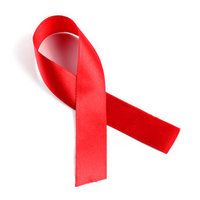University of Louisville Receives Funding to Meet Oral Health Needs of HIV/AIDS Patients
The $2 million in funding is designed for the unmet oral health needs of patients with HIV/AIDS.

The Kentucky Department for Public Health has awarded $2 million to the
University of Louisville School of Dentistry
in an effort to better meet the needs of underserved HIV/AIDS patients in the state.
As part of the Ryan White HIV/AIDS Treatment Extension Act of 2009, the state’s
program provides grants to states and United States territories in order to improve the quality, availability, and organization of HIV healthcare and support services. Part B explicitly funds core medical services and support services, including outpatient and ambulatory healthcare services. All support services funded must be linked to medical outcomes, and grant recipients are required to spend at least 75% of their award on core medical services, with no more than 25% being spend on support services.
Only one of 12 federally funded oral health programs in the United States, the university’s Community Based Dental Partnership Program (CBDPP) is the only one of its kind in the state of Kentucky. The grant has been awarded for 2016—2018. The program first received federal funding in 2014 as part of a six-month pilot program to expand the reach of oral health services for HIV/AIDS patients. Part of the initial goal was also to create a statewide network for improving access to comprehensive oral healthcare and improved outcomes for the target patient population.
The new two-year grant was based in part on the success of that initial pilot program. The goal of the program is now to provide increased access to dental care for patients living with HIV/AIDS, while also providing continuing education and clinical training for dental care providers.
The program director for CBDPP, Catherine Binkley, DDS, MSPH, PhD, said that “patients who have issues with their teeth begin to limit the types of food they eat. This can result in malnourishment, which in turn affects the absorption of HIV medications. The end effect is a more compromised immune system. Restoring teeth for patients in all these situations impacts their lives in major ways.”
People with HIV/AIDS living in Kentucky commonly have unmet dental needs, including fillings, crowns, bridges, and dentures. In 2015, University of Louisville dental care providers performed over 6,000 procedures for nearly 600 HIV/AIDS patients.
ACTIVA BioACTIVE Bulk Flow Marks Pulpdent’s First Major Product Release in 4 Years
December 12th 2024Next-generation bulk-fill dental restorative raises the standard of care for bulk-fill procedures by providing natural remineralization support, while also overcoming current bulk-fill limitations.